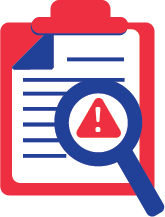New Regulations
Supply Chain Due Diligence Act will enter into force in 2023
New regulations force companies and investors to act. According to GSCA the in-scope companies are required to identify and estimate risks to human rights and the environment within their supply chains as well as implement appropriate or adapt their existing risk management accordingly
The German "Supply Chain Due Diligence Act" will enter into force in 2023 and will initially apply to companies with 3,000 or more employees, then from 2024 to companies with 1,000 or more employees with a registered office or branch in Germany.
For the first time, the Act will oblige companies to design, implement and monitor procedures that will enhance compliance with core human rights and certain environmental provisions in supply chains. This represents a major milestone towards German businesses assuming full and proper responsibility for the supply chains associated with their goods and services.
For the first time, the Act will oblige companies to design, implement and monitor procedures that will enhance compliance with core human rights and certain environmental provisions in supply chains. This represents a major milestone towards German businesses assuming full and proper responsibility for the supply chains associated with their goods and services.
Key insights:
To learn more, please visit the official page of the Federal Ministry of Economics and Climate Protection
Meanwhile, there are some challenges in meeting GSCA requirements, as well as meeting greater ESG goals. The further down a supply chain you dive, the harder it is to get timely, trusted and accurate data. Without understanding the entire negative impact and environmental risks, including supply chains, it is impossible to make systematic change and build a sustainable business.
Marine Digital provides ESG analytics and monitoring for all companies using ocean shipping and maritime supply chains. Analyzing and measuring economic, environmental, and operational risks in maritime transportation and logistics, our machine learning solution ensures transparent and trusted assessment of the supply chain's sustainability and performance as well as potentials for optimization of financial costs and environmental impacts.
A wide variety of stakeholders, different methodologies and reporting standards make supplier monitoring complicated. To overcome these obstacles, we apply truly one-of-the-kind approaches to efficiency factors' analyses aligned with IMO Protocol, GHG Protocol methods.
The ESG analytics gap across the value chain is still a barrier to sustainability for businesses and building a strong ESG strategy, and we know how hard to get reliable and trusted data.
You can learn more about Marine Digital ESG Solution here, or if you have any questions, contact our experts.
Read more about ESG Reporting: What You Need To Know
- This Act applies not only to companies with their registered office or principal place of business in Germany, but also to foreign companies that have a branch office in Germany. The new obligations for supply chain due diligence will inevitably impact foreign companies doing business with German companies.
- One of the core elements of duty of care is the establishment of a risk management system to identify, avoid or minimize the risks of human rights violations and damage to the environment. The law sets out what preventive and remedial measures are necessary, and requires complaints procedures and regular reporting.
- The law obliges companies to fulfill their due diligence obligations in their supply chains with regard to respecting internationally recognized human rights and certain environmental standards. The responsibility of the companies no longer ends at their own factory gate, but exists along the entire supply chain.
- Fines can be imposed if companies fail to meet their legal obligations. These can amount to up to 8 million euros or up to 2 percent of global annual sales.
To learn more, please visit the official page of the Federal Ministry of Economics and Climate Protection
Meanwhile, there are some challenges in meeting GSCA requirements, as well as meeting greater ESG goals. The further down a supply chain you dive, the harder it is to get timely, trusted and accurate data. Without understanding the entire negative impact and environmental risks, including supply chains, it is impossible to make systematic change and build a sustainable business.
Marine Digital provides ESG analytics and monitoring for all companies using ocean shipping and maritime supply chains. Analyzing and measuring economic, environmental, and operational risks in maritime transportation and logistics, our machine learning solution ensures transparent and trusted assessment of the supply chain's sustainability and performance as well as potentials for optimization of financial costs and environmental impacts.
A wide variety of stakeholders, different methodologies and reporting standards make supplier monitoring complicated. To overcome these obstacles, we apply truly one-of-the-kind approaches to efficiency factors' analyses aligned with IMO Protocol, GHG Protocol methods.
The ESG analytics gap across the value chain is still a barrier to sustainability for businesses and building a strong ESG strategy, and we know how hard to get reliable and trusted data.
You can learn more about Marine Digital ESG Solution here, or if you have any questions, contact our experts.
Read more about ESG Reporting: What You Need To Know

TOP 5 factors contributing to lower fuel costs for Shipping companies
Get a presentation with a full description of the features and free pilot project with trial of Marine Digital FOS for 2 months
"Clicking the button, you consent to the processing of personal data and agree to the privacy policy"

Get an overview "The Pathway to Zero Carbon Shipping:
IMO Compliance and CII Optimization through SEEMP" on email and download it for FREE! Leave your email now!
"Clicking the button, you consent to the processing of personal data and agree to the privacy policy, as well as consent to subscribe to the newsletter. "
Аdvantage of Fuel Optimization System from Marine Digital:

Marine Digital FOS can be integrated with other system and third-party's solutions through the API. To implement vessel performance monitoring for any vessel, we are using mathematical algorithms, machine learning and the same equipment as in FOS. The more data we collect from vessels, the more precise reports and recommendations our system will perform according to your individual requirements in fleet management.
If you have any questions about the solutions and the Marine Digital System platform, write to us, we will be happy to answer
If you have any questions about the solutions and the Marine Digital System platform, write to us, we will be happy to answer

Increased business process speed

Reducing to zero the number of errors

Best offer to the clients

Reduction in operating expenses
Have a questions?





